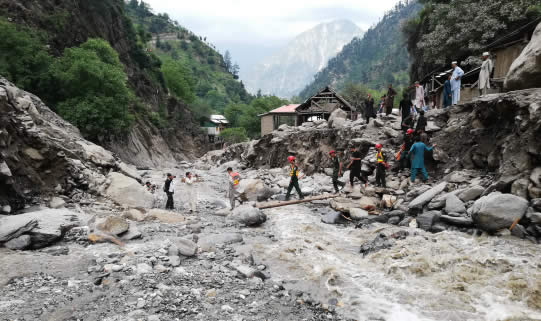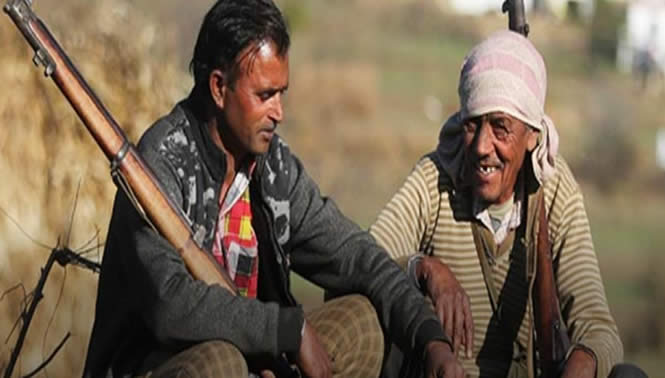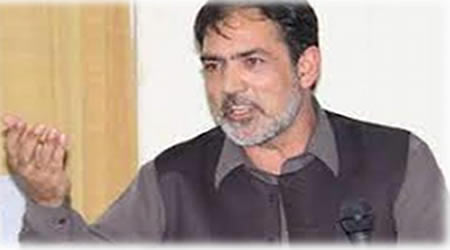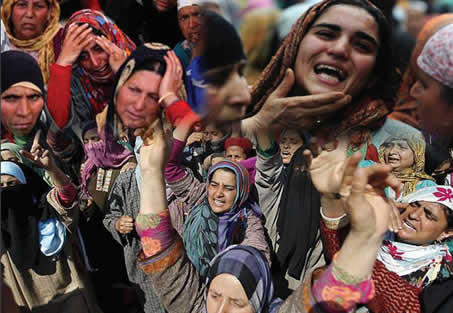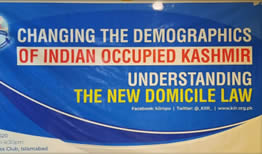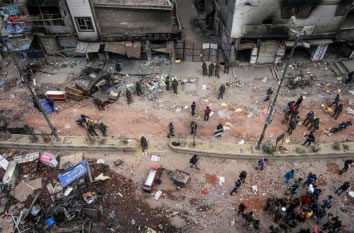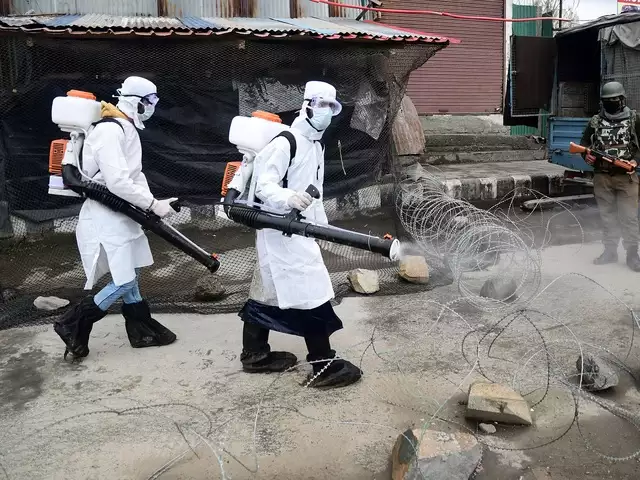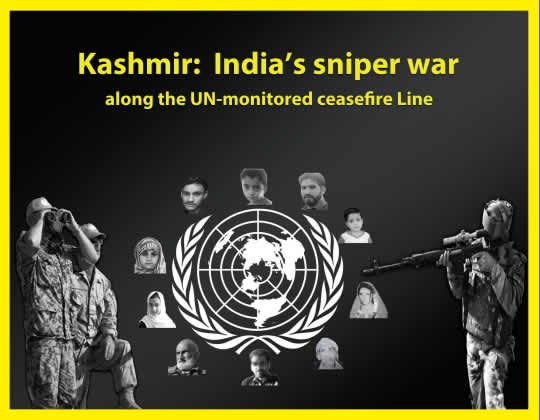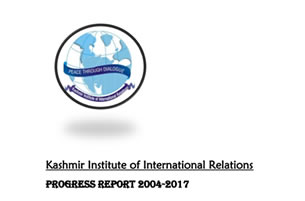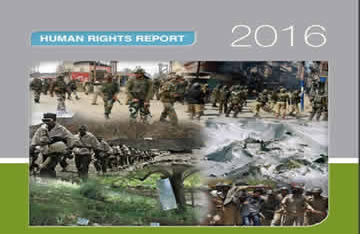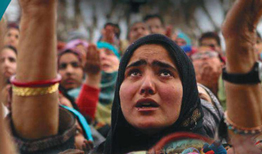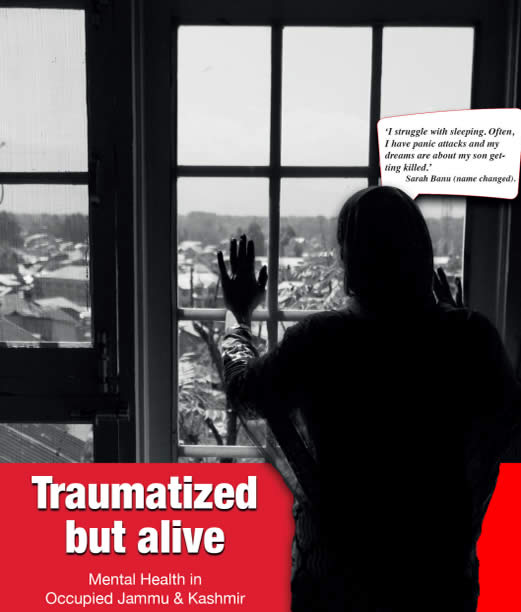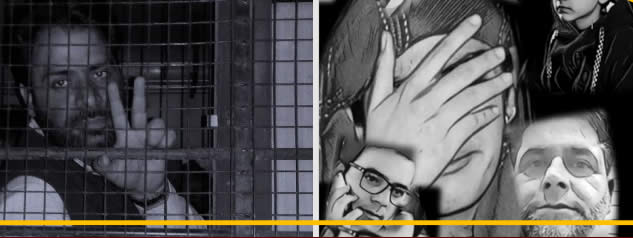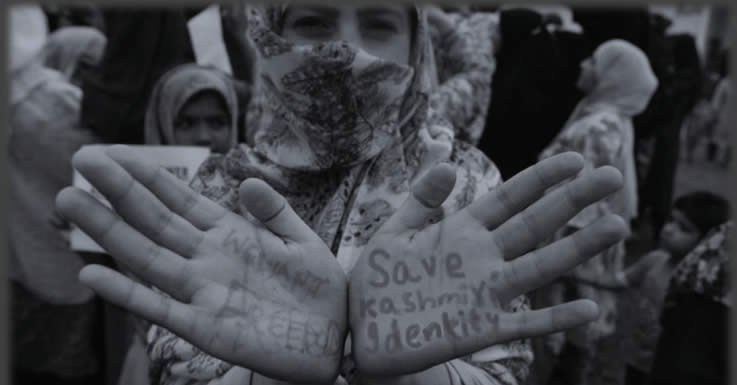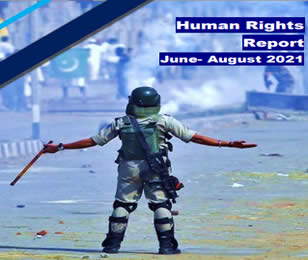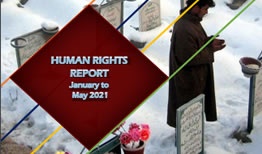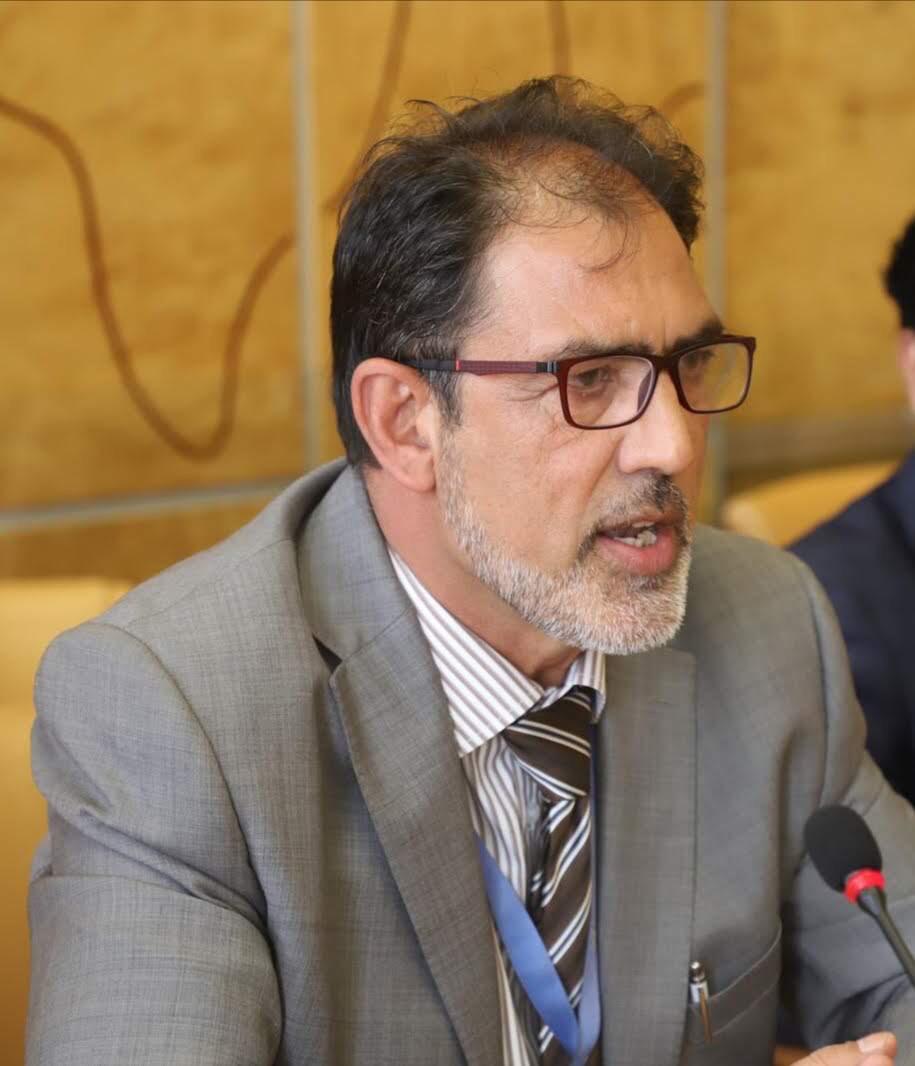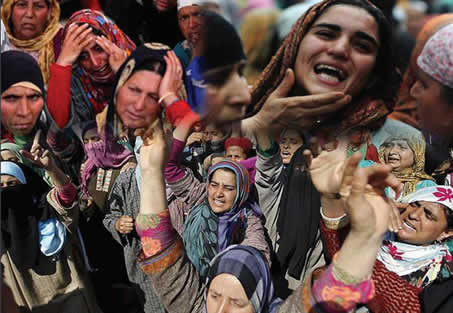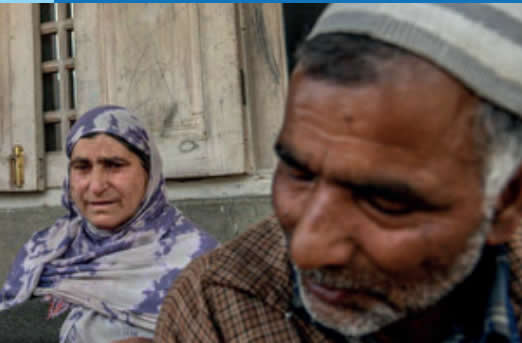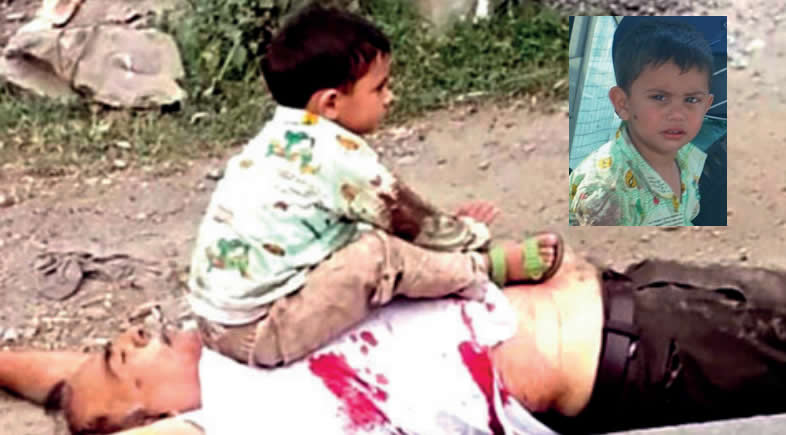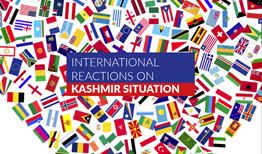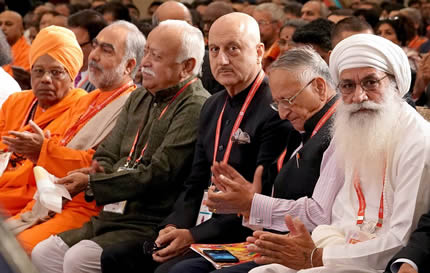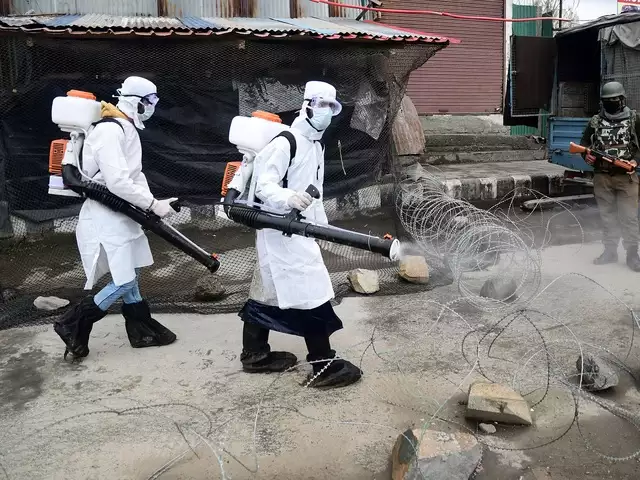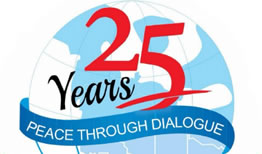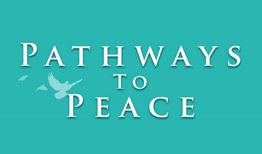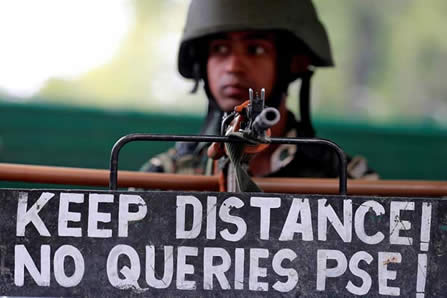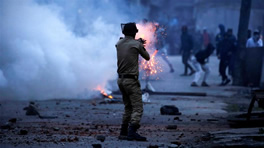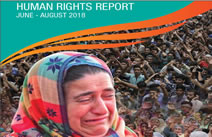IN Pursuit of Peace: Improving Indo-Pak Relation
Kashmir Holds the Key to Indo-Pak Ties
Altaf Hussain Wani

The people on both sides of the divide have been craving for peace for decades. It is in the best interests of both countries but the issue of Jammu and Kashmir is a primary source of bilateral aggression.
Numerous issues, including Siachen, and the Indus River System agreements remain contentious as all the rivers in the region flow through Kashmir raising the risk of water to Pakistan being held hostage to negotiations.
The Genesis of Kashmir Dispute
The Kashmir conflict started in 1947 soon after the Partition of the Indian subcontinent. India, under the cover of the so-called Instrument of Accession, rushed its troops to Kashmir on 27th October, 1947. The controversial agreement, which was disputed by many neutral observers, has never been made public by India either officially or on any international forum. Pakistan reacted strongly to the Indian move, leading to the first war between the two newly formed countries.
UN Mediates Ceasefire
It was India which first took the Kashmir dispute to the
United Nations on 1 January, 1948, during the war. The UN
mediated a ceasefire between Indian and Pakistan on 1 January,
1949, allowing the two countries to retain control over the territories
of Jammu and Kashmir each held at the time.
On 5 January, 1949, the UN made it clear that, “The question of the accession of the State of Jammu and Kashmir to India or Pakistan will be decided through the democratic method of a free and impartial plebiscite”. The ceasefire resolution was implemented on 27 July, 1949, after the military representatives of Pakistan and India met in Karachi.
On 21 April, 1948, the UN Security Council (UNSC) adopted a resolution reiterating its demand that the accession of the state should be “decided through democratic method of a free and impartial plebiscite”. The resolution also instructed the United Nations Commission for India and Pakistan (UNCIP) to visit the subcontinent to mediate and facilitate both countries to hold a plebiscite.
On 12 February, 1951, Jawaharlal Nehru, then Prime Minister of India, in his statement in the Indian Parliament said, “We have taken the issue to the UN and given our word of honour for a peaceful solution. As a great nation, we cannot go back on it. We have left the question for a final solution to the people of Kashmir, and we are determined to abide by their decision.”
The solemn pledges made to the people of Kashmir were never fulfilled. The plebiscite was never held: the successive Indian rulers ignored and undermined the role of the UN and the solemn pledges they made to the international community and people of Kashmir.
United Nations' Role
The United Nations' role in resolving the Kashmir dispute has not been encouraging. The vigour and interest the United Nations displayed in settling other disputes, including those in East Timor and South Sudan, has not been evident in Kashmir, the oldest unresolved issue still pending on the UN agenda. However, influential world governments and heads of powerful institutions have offered their services to help reach a peaceful resolution.
Pakistan welcomed the mediation, and offered wholehearted support but New Delhi has consistently refused to accept third-party intervention. Blocking all attempts to find a peaceful resolution, India has instead preferred to follow the path of colonialism to grab Kashmir, choosing force to suppress the Kashmiris' legitimate demand for the right of self-determination.
Bilateral Engagements: ALong Trail of Broken Promises
Apart from the UN mechanism, India and Pakistan have
signed multiple bilateral agreements in which the two sides agreed
in principle to resolve bilateral disputes, including Jammu and
Kashmir, through dialogue and diplomacy. But there has been a long
trail of betrayals and broken promises. From Tashkent to Lahore
declarations, every attempt has proved an exercise in futility. After
backtracking from international commitments on Kashmir, New
Delhi invoked bilateral agreements to minimise the international
community's role and third-party intervention on Kashmir. India's
consistent position remains that issues, if any, between India and
Pakistan should be resolved bilaterally.
Composite Dialogue Process
The Composite Dialogue Process (CDP) between India and Pakistan took off in 2004. However, the concept of the composite dialogue was previously articulated in 1997 when the then Indian Prime Minister, Inder Kumar Gujral, and his Pakistani counterpart, Nawaz Sharif, agreed at the SAARC Summit in the Maldives, to institute a structural dialogue process. The sole objective was that no preconditions would be set or demanded by either country. Both sides agreed to accommodate each other's key concerns: India agreed to include Kashmir in return for Pakistan agreeing to talk on terrorism. A year later the Indian Premier, Atal Bihari Vajpayee's visit to Lahore gave a further boost to the initiative. In 1999, a limited war broke out in Kargil, and the CDPwas suspended.
The peace process was revived in January 2004 after a meeting in Islamabad between Pakistan President, General Pervez Musharraf, and Indian Premier, Atal Behari Vajpayee. A new thaw in otherwise bitter and frosty relations emerged on the horizon. A joint statement covered Indian concerns about cross-border infiltration as well as Pakistan's emphasis on the resolution of the Kashmir dispute. The peace process continued for several years, despite many ups and downs. Currently, there is little sign of progress in resolving issues including, Siachen and Sir Creek.
Pakistan showed a great deal of flexibility to make the peace process a success, but India remained trapped in a fixed mindset that has prevented a resolution. However, many Kashmir-centric Confidence Building Measures (CBMs) were taken during this period, generating hope and optimism for the improvement of bilateral relations. A show of camaraderie by the Indo-Pak leaders had created a feeling that a historical moment was not far away when decades' long hostility would be transformed into an era of peace and tranquility. But despite the continued interactions and CBMs, India unilaterally suspended dialogue in 2008 after the Mumbai attack. Making a hasty exit from dialogue, the then Indian Government, as usual, blamed Pakistan-based non-state-actors for the attack and suspended all peace engagements.
The dialogue resumed in 2010. The two sides reiterated their commitment to continue the talks and vowed not to make it hostage to any single incident of violence. However, in October 2013 at the summit level talks in New York, the Indian PM said, before entering into formal talks, the two countries first needed to sort out the controversy over the Line of Control (LoC) tensions in Kashmir.
With a new Government in power in India following the 2014 general elections, the Pakistan Government expressed its willingness to resume the composite dialogue and have meaningful result-oriented discussions on all issues, particularly Kashmir.
PM Nawaz Visits India
Prime Minister Nawaz Sharif visited New Delhi for the
swearing-in ceremony of Prime Minister Narendra Modi, who had
swept into office riding a strident anti-Pakistan rhetoric. For Sharif o attend at the peak of tensions was sensitive, but the decision was
taken in the hope that his visit would help break the logjam and lead
to a resumption of peace talks. In an apparent goodwill gesture,
Pakistan released more than 150 Indian prisoners a day before Mr
Sharif travelled to New Delhi. “It is a great moment and a great
opportunity,” Sharif told the Indian NDTV network, adding, “This
could help in turning a new page in our relations”. The gestures of goodwill rekindled new hopes. Modi's first
two years in office triggered a great deal of optimism, from agreeing
on a roadmap for talks at Ufa in Russia, greeting Nawaz Sharif in
Paris, and his dramatic visit to Lahore. All these steps were seen as a
sign of a gradual thawing of relations. But hopes for the resumption
of full spectrum dialogue were dashed after the Indian government
toughened its stand, and adopted a “no talk policy” with Pakistan.
India's False Flag Operations
Indo-Pak relations reached a new low in 2019 when Indian warplanes crossed the LoC in the disputed region of Kashmir and dropped bombs in the vicinity of Balakot - a town in Khyber Pakhtunkhwa Province (KP) in Pakistan. The air strike was conducted 12 days after the Pulwama attack - an incident India used as a pretext to create a war hysteria against Pakistan and to extract strategic electoral benefits. Former Chief Minister of Indian Administered Kashmir, Mr Farooq Abdullah, said publicly that the operation was ordered with the sole purpose to help the Bharatiya Janata Party (BJP) win the Lok Sabha elections and project Modi as a kind of an avatar without whom India cannot survive.
Pakistan's Efforts to De-escalate Tensions
The incident was sufficient to trigger the spectre of war, but Pakistan again demonstrated a great deal of restraint and responsibility. To de-escalate the dangerous situation, Pakistan released an Indian Air Force pilot who was captured alive on Pakistan's side of the LoC after his plane was downed by the Pakistan Air Force.
Letter of Felicitation: ACall for Peace
The BJP won the Lok Sabha polls again in 2019 and Modi, as expected, was re-elected as Prime Minister of India for the second time. His Pakistani counterpart, Imran Khan, in a congratulatory letter, renewed his country's call for peace, underscoring Pakistan's vision of working for durable peace and stability in South Asia with peaceful resolutions of all outstanding issues.
India Revokes Article 370
On 5 August, 2019, India unexpectedly revoked Kashmir's semi-autonomous status and dissolved the territory into two Union Territories. Pakistan reacted to the abrogation of Article 370 by downgrading diplomatic ties with India, suspending bilateral trade, and partially shutting airspace.
Modi's Pakistan Day Message to Imran
In a letter addressed to PM Imran Khan, the Indian PM said, “As a neighbouring country, India desires cordial relations with the people of Pakistan. For this, an environment of trust, devoid of terror and hostility, is imperative".
Pakistan Extends a Hand of Peace
Chief of Army Staff, General Qamar Javed Bajwa, while addressing the first Islamabad Security Dialogue, said, “Stable ndo-Pak relations were the key to unlocking the potential of South and Central Asia by ensuring connectivity between East and West Asia.” Stressing that it was time for India and Pakistan to "bury the past and move forward”, General Bajwa lamented that this potential has always remained hostage to the disputes and issues between the two nuclear neighbours.
"The Kashmir issue is obviously at the heart of this,” he added. “It is important to understand that without the resolution of the Kashmir dispute through peaceful means, the process of subcontinental rapprochement will always remain susceptible to derailment due to politically motivated bellicosity”.
General Bajwa's statement was an obvious manifestation of the Pakistani Government's policy of rapprochement and its desire to re-establish cordial relations with India, with the expectation that New Delhi would reciprocate positively by seizing this opportunity to rebuild the perpetually tense relations between the two countries.
But normalisation of the bilateral ties remains a distant dream and shadow of the Kashmir conflict continues to hang ominously over the two countries. It has led to three wars and several other armed skirmishes and turned the two countries into opposing armed camps, equipped with nuclear weapons. Initially, the UN proposed a comprehensive road map to resolve the dispute; it was a unique opportunity, and had it been grabbed in a timely manner, today there would have been no dispute over Jammu and Kashmir. But the intransigence of the Indian leaders has brought South Asia to the brink of a nuclear war. This conflict and crisis management approach by Indian leaders has hampered a genuine discussion on Kashmir. Conversely, the Pakistani leadership has shown a great degree of responsibility and flexibility to resolve the dispute peacefully. Even General (Rtd) Pervez Musharraf, the former President of Pakistan, offered an out-of-the-box solution for the Kashmir dispute, but Indians failed to seize this historic opportunity.
How to Improve Bilateral Relations
Many initiatives have been taken to improve the Indo-Pak relationship. From Tashkent to Lahore declarations, composite dialogue to comprehensive dialogue, from truce agreement and confidence building measures (CBMs), but all have proved futile. The reason for failure is obvious - no serious effort was made to address the root cause of problem. Despite knowing that most of the problems stem from Kashmir issue, the Indian side continued to use delaying tactics to avoid a genuine debate and discussion. India's wilful attempts to bombard the peace process with a series of small CBMs proved to be nothing but tactics to postpone addressing the larger issue of the final territorial settlement of Kashmir. For a positive change to take place, the Indian leadership must take a holistic review of the situation and recognise the ground reality that:
A. The root cause of instability and Indo-Pak hostility revolves around Kashmir.
B. Kashmir is not just a territorial dispute or an internal matter of India.
C. Political settlement is the only way forward to deal with this issue.
D. Resolution of the Kashmir dispute holds key to IndiaPakistan ties.
E. There is no way other than to resume a structured, timebound, and meaningful dialogue with Pakistan and the people of Kashmir to find a solution acceptable to all the stakeholders to reduce the possibility of a nuclear clash.
F. Parallelly, CBMs should be pursued sincerely to overcome the “trust deficit”, but should not be used as a substitute for the resolution of disputes.
G. Economic co-operation and trade should be facilitated to the mutual benefit of both countries.
H. Both States need to reach a common understanding of each other's legitimate regional interests and how those can be pursued without leading to conflict.
I. The two countries should not allow anti-peace activists or
non-state-actors to derail the process.
Mr. Altaf Hussain Wani is the Chairman, Kashmir Institute of
International Relations (KIIR) and has vast experience in
negotiation skills and human rights advocacy at national and
international levels. He is a regular attendee of United Nations
Human Rights Council sessions.
Related Reports



























